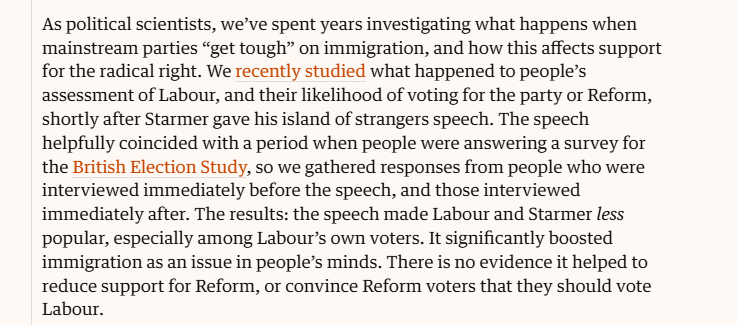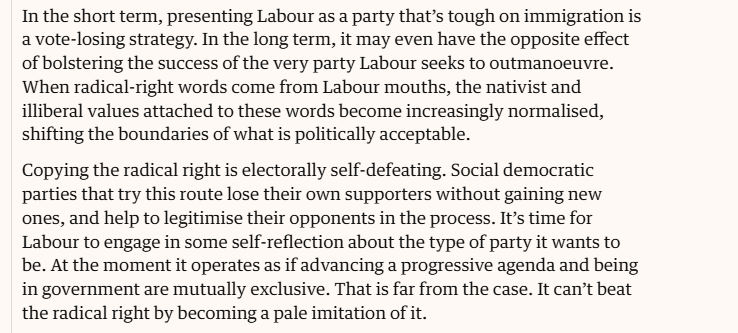As political scientists, we've spent years investigating what happens when
mainstream parties “get tough” on immigration, and how this affects support
for the radical right. We recently studied what happened to people’s
assessment of Labour, and their likelihood of voting for the party or Reform,
shortly after Starmer gave his island of strangers speech. The speech
helpfully coincided with a period when people were answering a survey for
the British Election Study, so we gathered responses from people who were
interviewed immediately before the speech, and those interviewed
immediately after. The results: the speech made Labour and Starmer less
popular, especially among Labour’s own voters. It significantly boosted
immigration as an issue in people’s minds. There is no evidence it helped to
reduce support for Reform, or convince Reform voters that they should vote
Labour.



